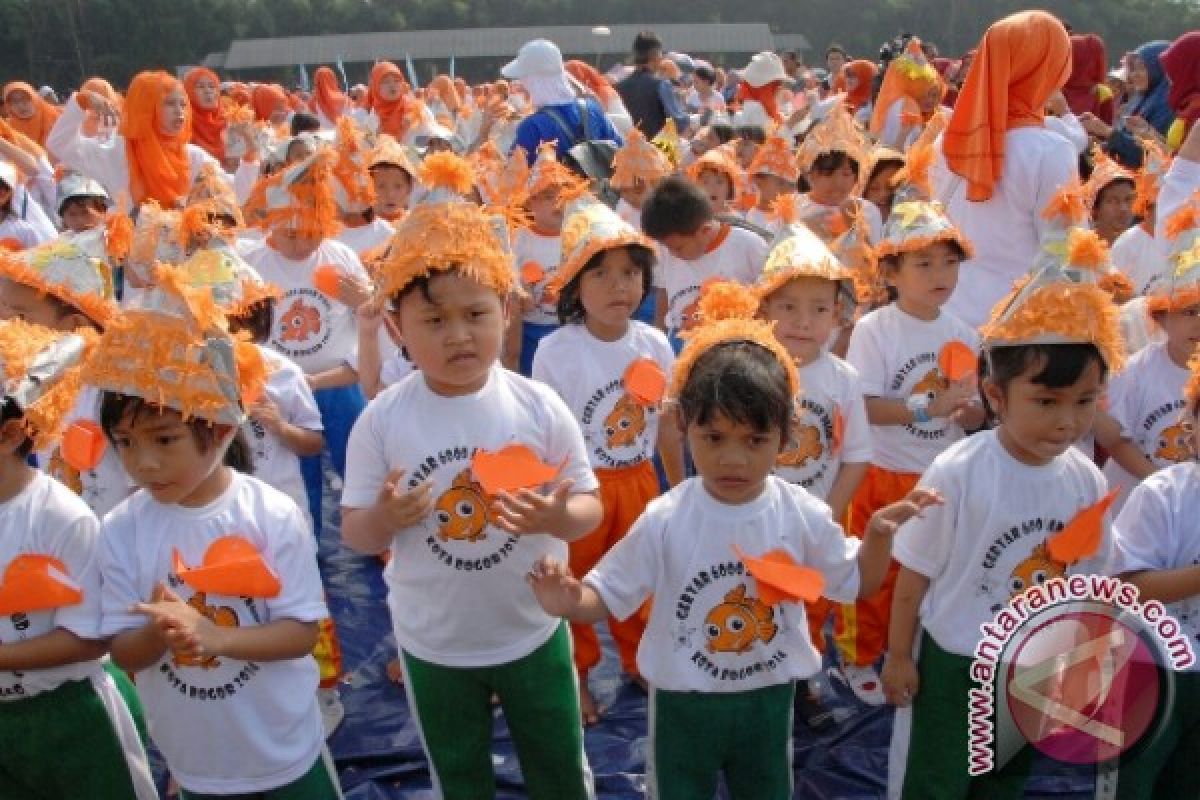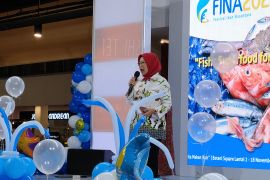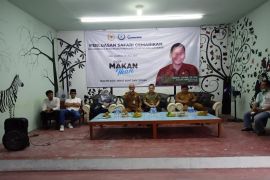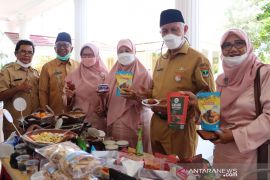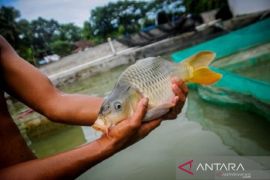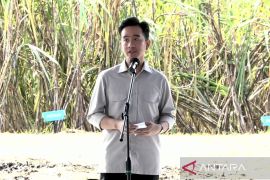We hope this will lead to an increased consumption of fish."Jakarta (ANTARA News) - Eat Fish for Building Intelligence, Health, and Strength. There was a time when the former fisheries product processing and marketing director general of the Maritime Affairs and Fisheries (KKP), Saut Hutagalung, loved to propagate this slogan.
Indonesian people are fond of going out in search of culinary delicacies and lazily sample the treats at different food stalls, eateries or restaurants. Seafood and fish figure among the culinary delicacies on any menu. Luckily, Indonesia is an island country with vast seas and abundant fish resources.
But has Sauts slogan encouraged them to go out on a food hunt or to eat fish? Eating fish meets both the needs---keeping a good health and pampering a growling stomach.
Saut is now an expert staff for economic, social and cultural affairs of the KKP. Since he echoed the slogan two years ago, several fish eating campaigns have been organized, including in the Jambi province and in the Lebak District, Banten Province. A most recent one was held in Muntok, Bangka Belitung province.
Some 1,000 residents from various regions in the Bangka Belitung (Babel) Province are taking part in what they called the Gemarikan movement (community fish eating movement), held along Muntoks Baturakit Beach, West Bangka District, on Tuesday.
"We hope this will lead to an increased consumption of fish. It will convince people to preserve the sea resources and make such supplies sustainable," Amir Hamzah, the chief of the KKP office for West Bangka District, noted on Tuesday.
The Gemarikan event at Muntoks Baturakit Beach was also enlivened with a series of Nusantara (archipelago) Day and a cooking festival featuring cuisines involving various species of fish. It was attended by contestants from seven districts/municipal cities of the province.
According to Hamzah, the activities are also intended to promote consumption of fish. Such events can spur peoples interest in consuming fish, particularly the younger generation. "We also invited students from schools in the region to take part and know more about the importance of consuming fish every day," Hamzah added.
During the fish eating campaign activities, the KKP office for Babel invited resource persons to narrate the advantages of eating fish. They also presented a number of interesting games.
The event was marked by various kinds of contests, such as a kite-flying contest and a fish-cooking contest. These were open to the local people and officials of the local government offices.
The Gemarikan event was also attended by Bradley Amstrong of the Australian Embassy, Babel Governor Rustam Effendi, West Bangka District Head Parhan Ali, Deputy District Head Markus and a number of other invitees.
A similar campaign was also launched by the KKP Service for Lebak District, Banten Province. The Head of the KKP Service for Lebark, Tb Aasep Saepudin, last week urged the local people to increase the consumption of fish as these contain high levels of protein.
The local government continues to optimize its efforts to encourage people, particularly mothers, to have more fish with an aim to increase their fish protein intake. This will lead to healthier babies at birth.
Consuming fish can also reduce the mortality rate among mothers and babies during labor. According to Saepudin, people must be encouraged to eat fish as it would improve their health and nutritional intake.
The local peoples response to the fish eating campaign has been positive. After all, Lebak District is a region which continues to witness an increase in its catch fish and rising level of fresh water fish pond development.
"We encourage people to increase their fish consumption because fish contains a high level of protein. Also, it is cheaper when compared with beef," he noted, adding that the local government has targeted that each family member should consume 43.88 kilograms of fish per annum.
Based on the report of the KKP in 2015, peoples fish consumption was only about 41.11 kg per capita per year.
Indonesias per capita fish consumption has, in fact, increased as compared to 29.08 kilograms in 2009 and 30.47 kilograms per annum recorded in 2010. Therefore, the peoples fish consumption still has to be increased as it is good for the growth of the brain.
Saut, who was attending the eat fish "Foreikan Jamboree" in Jambi to observe the National Fish Day a couple of years ago, said that human brain cells need high supply of protein, particularly newly born infants. The development of brain cells can be boosted by consuming fish.
"Therefore, we have the slogan: Eat Fish for Building Intelligence, Health, and Strength. The growth of brain cells is supported by protein, which comes from different sources such as fish. Fish contains Omega3 for brain growth," Saut Hutagalung stated.
According to him, about 65 percent of the protein needs could be supplied by fish. Meeting nutritional needs is a serious problem, which is apparent by the fact that the average height of the people in the Southeast Asian Nations (ASEAN) is 174 centimeters while that in Indonesia is only about 158 centimeters.
The average IQ level of the ASEAN people is 93 while that of Indonesia is only 89. Saut remarked that this problem must be overcome, and the situation should be improved by increasing fish consumption.
"We have concerns to increase fish consumption among people. Fish has more advantages as compared to other types of meat," Saut noted.
No form of disease has been found in fish meat that could endanger the health of the consumers. Other types of meat may contain diseases.
In beef, people know what is called as mad cow disease, and they also find bird flu in fowls. But, in fish, except for fat, they do not find any dangerous diseases. The fat content in fish does not pose a significant problem. Fish is classified in the white group of meat, which has a positive impact on health.
Therefore, the people should continue to promote and eat more fish. The people should increase fish production both through cultured and fish-catching endeavors.
(T.A014/INE/B003/KR-BSR/B003)
Reporter: Andi Abdussalam
Editor: Priyambodo RH
Copyright © ANTARA 2016
